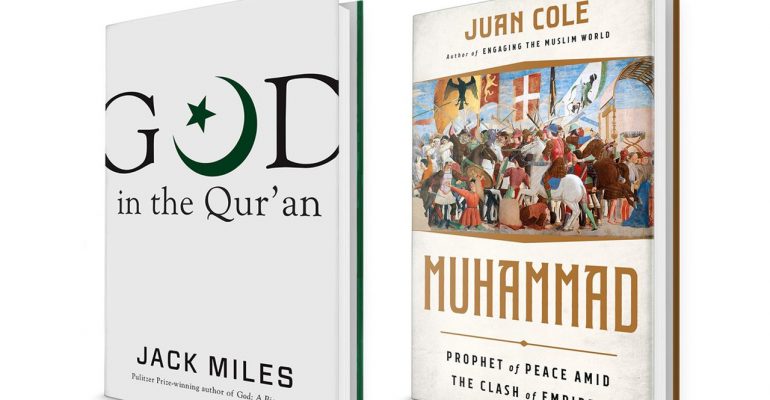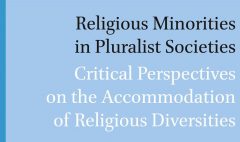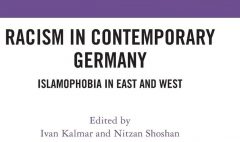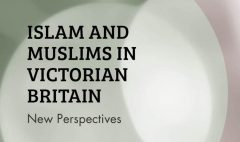Illuminating Islam’s Peaceful Origins
December 26, 2018 2023-10-08 8:35Illuminating Islam’s Peaceful Origins

Illuminating Islam’s Peaceful Origins
• God in The Qur’an
By Jack Miles
256 pp.
Publisher: Knopf Doubleday (November 2018)
• Muhammad: Prophet of Peace Amid the Clash of Empires
By Juan Cole
326 pp.
Publisher: PublicAffairs (October 2018)
Is Allah, the God of Muslims, a different deity from the one worshiped by Jews and Christians? Is he even perhaps a strange “moon god,” a relic from Arab paganism, as some anti-Islamic polemicists have argued?
What about Allah’s apostle, Muhammad? Was he a militant prophet who imposed his new religion by the sword, leaving a bellicose legacy that still drives today’s Muslim terrorists?
Two new books may help answer such questions, and also give a deeper understanding of Islam’s theology and history.
Jack Miles, a professor of religion at the University of California and the author of the Pulitzer-winning book “God: A Biography,” has written “God in the Qur’an.” It is a highly readable, unbiasedly comparative and elegantly insightful study of the Quran, in which he sets out to show that the three great monotheistic religions do indeed believe in the same deity — although they have “different emphases” when it comes to this God, which accounts for their divergent theologies.
To begin with, one should not doubt that Allah is Yahweh, the God of the Bible, because that is what he himself says. The Quran’s “divine speaker,” Miles writes, “does identify himself as the God whom Jews and Christians worship and the author of their Scriptures.” That is also why Allah reiterates, often with much less detail, many of the same stories we read in the Bible about Yahweh and his interventions in human history. The little nuances between these stories, however, are distinctions with major implications…
The story of Moses, again a crucial one in both the Bible and the Quran, comes with similar nuance. In the Bible, the great mission of Moses is to liberate his people, the children of Israel, from the yoke of the Pharaoh. In the Quran, too, Moses rises up against the Pharaoh, but his main problem is that the Pharaoh and his people worship false gods. Yahweh “wants to defeat Pharaoh,” Miles observes, for he has “no intention of ever becoming Egypt’s God.” In contrast, Allah wants to convert Pharaoh and to make all Egypt monotheist.
Through such scriptural comparisons, Miles gets to the core of the Abrahamic matrix: The monotheism that the Jewish people developed over the centuries was inherited by Islam and was turned into a global creed. All the national elements within Judaism, meanwhile, were then muted… The book underlines other distinctions between Yahweh and Allah. The former comes across as more disputable and “less absolute and overwhelming.” Allah, on the other hand, appears as more “compassionate.” And while Allah offers both great promises and threats for the afterlife, Yahweh is focused on this world…
Source: New York Times








